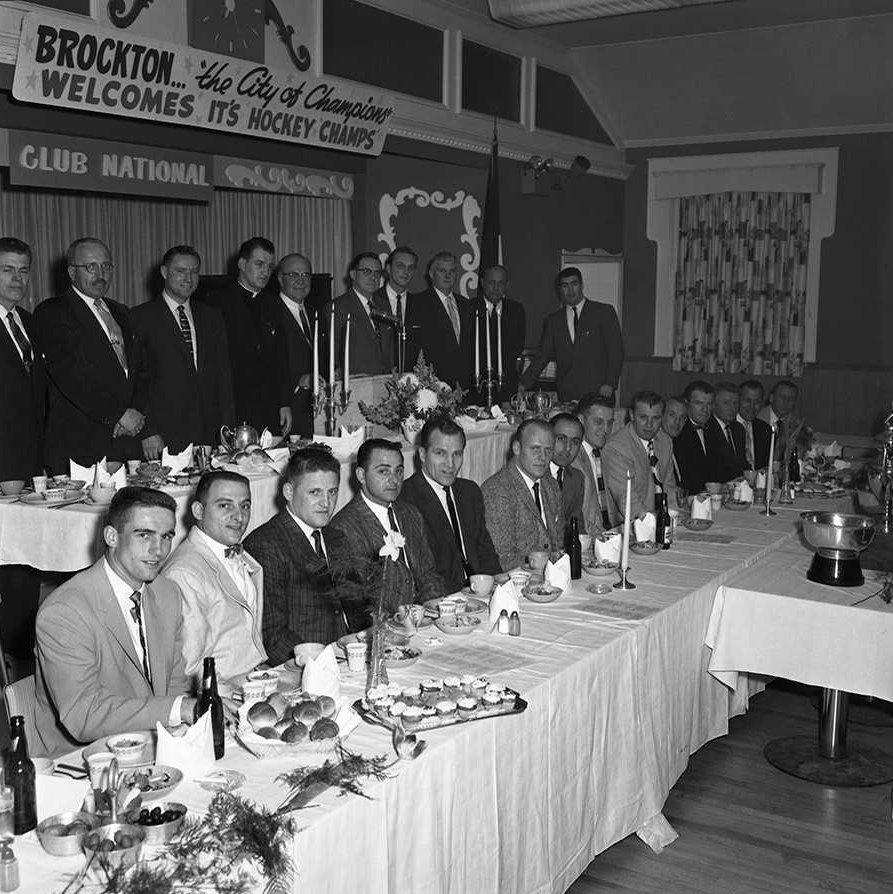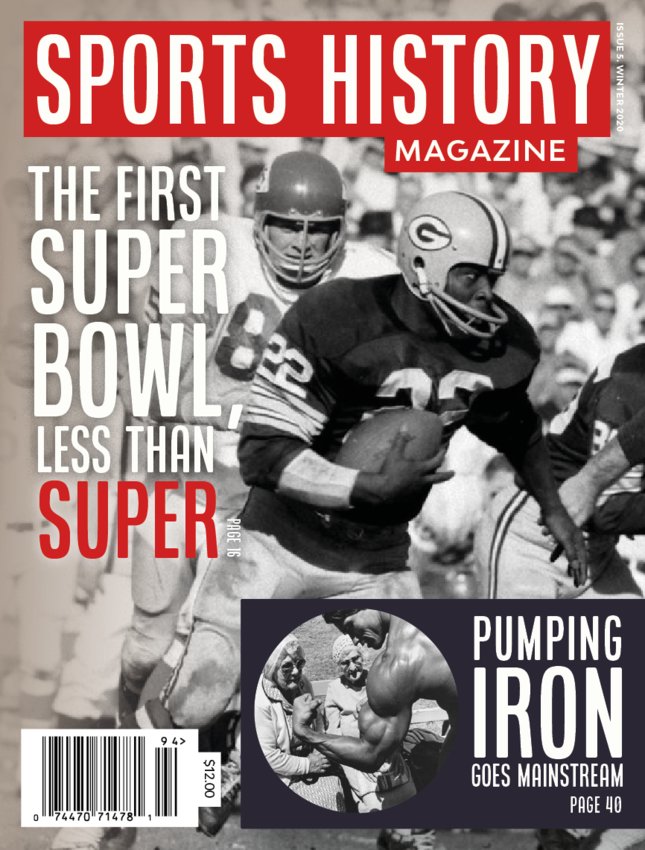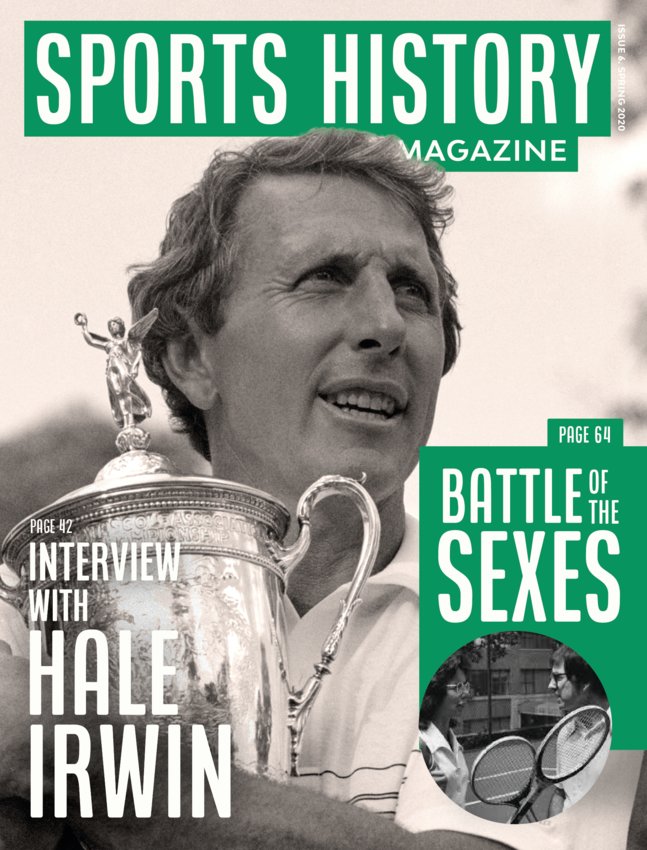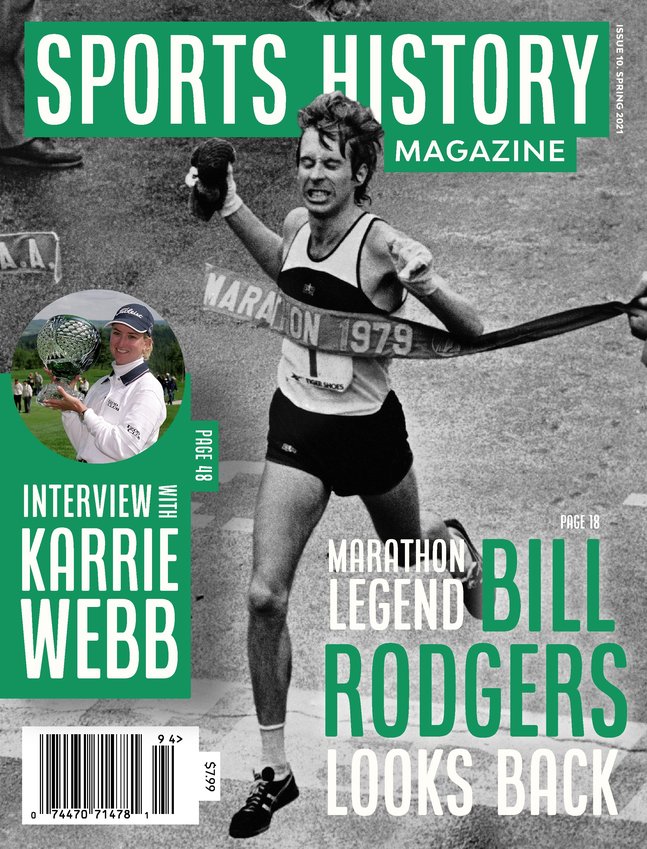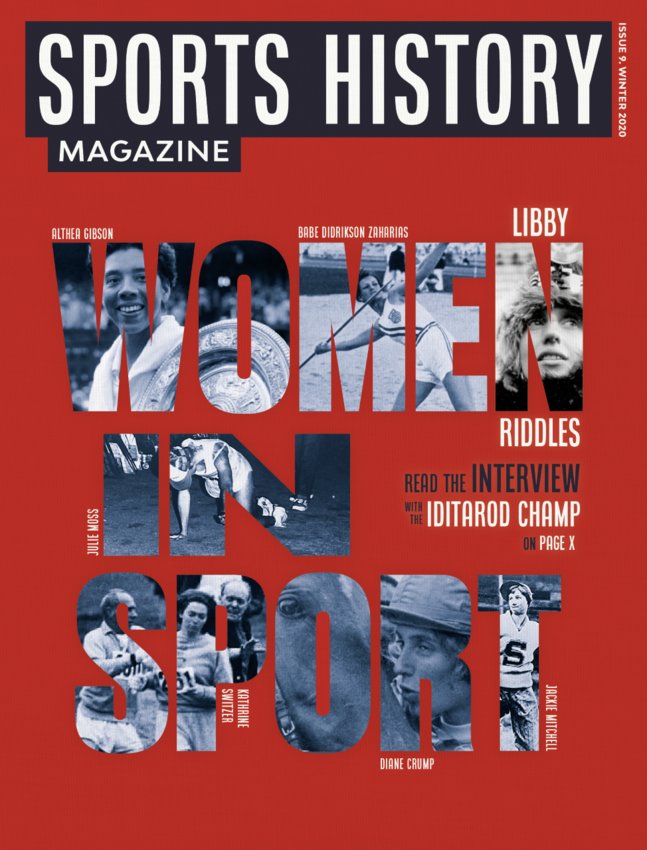A Forgotten Cold War Hockey Tale
In November, 1959, America’s reigning senior amateur ice hockey champions, the Brockton “Wetzells” of Massachusetts, accepted an invitation to play five games at Moscow’s grand Luzhniki Sports Palace. It was the height of the Cold War and amid high expectations, the Americans’ performance left much to be desired. In fact, it was a disaster. The episode has long been forgotten, but it reveals a good deal about how global politics has, ever since, come to “color” friendly international sport.
The Brockton squad was a talented group that included one-time Williams College goalie Dick “Lefty” Marr, ex-Harvard defenseman Robert “Scooter” McVey, and forwards Dick Rodenhiser, a former Boston University captain and U.S. national teamer (1954-57), who had won silver at the 1956 Olympics, and Ralph DeLeo, an ex-pro from the Eastern Hockey League.
“I don’t think we will win all of our games,” a sanguine coach Louis Duhamel predicted after the team’s arrival, “but I’m no pessimist either, because I know the strength and will power of our players.”
But strength and will came nowhere near skill. In the series opener against Central Army, Brockton scored the first two goals. Then the onslaught began, producing a lopsided score: Army 12, Brockton 3. The second game—against Krylia (Soviet aviation workers)—promised to be better. It wasn’t. The Russians drubbed Brockton 17-1, an insult made worse when forward Skip Viglirolo was cut for several stitches.
In the third and fourth games, two all-star teams from Moscow bested the Americans, 17-0 and 12-3. In the final contest they faced Moscow Dynamo, whose mercy yielded a less drastic result: Dynamo 4, Brockton 0.
In five games, the Americans gave up 62 goals and scored seven. Among the most disappointed were Russian fans, 10,000 of whom showed up for the first game, but whose numbers dwindled thereafter. A New York Times headline stated: “Ineptitude of U.S. Hockey Team Astonishes Moscow Spectators.”
The Cold War was raging and a year earlier, the U.S. and Russia had fashioned a “Soviet-American Agreement on Scientific, Technical and Cultural Exchanges,” which provided for “meets” between the countries in eight different sports, including hockey. The Brockton trip was cast as a promising overture toward a cultural understanding.
To American eyes, that was fine as long as “understanding” meant a demonstrated superiority. For this reason, the tour was followed keenly by major media in the U.S., including the Christian Science Monitor, New York Times, Washington Post and Sports Illustrated.
By the end of the tour, the press had vilified the players as “part-timers,” a “pick-up” team, and poor ambassadors. In SI, Edmund Stevens accused the Brockton players of staying up all night, “smoking, drinking and overeating,” acting like ungentlemanly boors, wolf-calling at ladies in the Hotel Metropole lobby and elevators, prompting complaints from those who “had had their bottoms pinched or skirts raised.”
The Post called the performance a “disgrace.” Astonished, Amateur Hockey Association of the U.S. (AHAUS) president Walter Brown promised a letter of apology to the Russian Ice Hockey Federation. If the accusations proved true, he would issue lifetime bans from U.S. amateur hockey for the guilty parties.
But the deepest embarrassment came less from the team’s conduct than from its appalling loss to the Soviets at a time when sport had become a proxy for a political system’s worth. “If we hope to impress the world,” one letter-to-the-editor writer noted in SI, “then we should send nothing but the best, for its eyes are on America and everything we do.”
At political levels, fingers were pointing in all directions. American government officials blamed AHAUS for the team’s weakness and claimed that the State Department should have had a say in player selection. In turn, AHAUS blamed club teams in the U.S. unwilling to offer players to bolster the Brockton roster.
The lesson wasn’t lost. In the following year, U.S. authorities crafted a team of America’s best that brought home the nation’s first Olympic hockey gold at the Squaw Valley Games.
The story of the 1959 Brockton Wetzells has been eclipsed by the 1960 Miracle, but it is an instructive one for all of us who are fascinated by the way that global political currents have influenced hockey and vice-versa.
Stephen Hardy and Andrew Holman are authors of the newly-released book Hockey: A Global History, which is available for sale on our site. Stephen Hardy is an emeritus professor at the University of New Hampshire (stephen.hardy@unh.edu). Andrew Holman is a professor at Bridgewater State University (a2holman@bridgew.edu).
Other articles enjoyed: Greatest Comeback in Stanley Cup History, Miracle On Ice, Oldest Franchises: Survivors of Time

